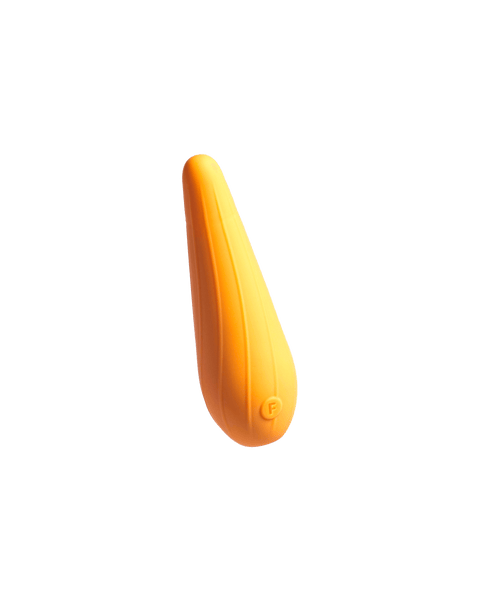Penetrative sex can be great. But if we’re looking for an orgasm, it doesn’t always deliver.
Our Big Sex Survey revealed that less than half of all people with vulvas orgasm during sex, and that people with penises don’t always come during penetration either.
These stats are backed up by the now-famous Cosmopolitan Orgasm Survey, which found that 57% of women orgasm every time they have sex with a partner, even though those same women reported their partners orgasming 95% of the time.
The survey found that only 15% of women regularly came from penetrative sex alone, and many women added that when they did have an orgasm, it was from masturbation alone or clitoral stimulation during sex.
It feels like universally, penetrative sex isn’t bringing the orgasms we want. We’re not going to ditch having penetrative sex—but we’re not going to give up on those orgasms, either.
This is where outercourse comes in.
Wait, what’s outercourse?
Outercourse is sexual contact without penetration—basically, it’s everything but.
Outercourse can include things like fingering, oral sex, and non-penetrative anal play; and it can also include some of the sexual acts we might practise less often or skip over completely, like dry-humping, scissoring, frottage (rubbing genitals together), masturbating with a partner, or having a hot and heavy make-out session.
Kink practises like impact play and restraint can be a part of outercourse, as can using sex toys together. Sexting, phone sex, and video chats can all be a part of outercourse too.
Basically, outercourse can be anything you want it to be, which is part of the reason why it’s so exciting.
But what’s the difference between outercourse and foreplay?
There’s not a massive difference between outercourse and foreplay when it comes to the acts they involve.
Both outercourse and foreplay can include kissing, mutual masturbation, oral sex, and a whole host of other fun stuff that doesn’t include penetration.
But this is more of an issue of framing—outercourse is about changing the way we approach these acts.
“I kind of having issues with the current understanding of foreplay,” says sex coach, Georgia Grace. “The word itself suggests it’s ‘before’ a main event, or penetration.
“Foreplay should be more than just going down on someone early on or dry humping for a few minutes. I prefer something that is more focused on the moments before sex, where we can check in with each other’s feelings, get a sense of shared desire, and connect on a deeper level."
“That’s why I’m a big proponent of outercourse, which essentially means anything you want to do—consensually—that doesn’t involve penetration.”
So by removing the expectation that all of these non-penetrative acts are just precursors to penetrative sex, we can reframe our thinking about them.
We reckon this can lead to more appreciation of these acts, more enjoyment of them, and ultimately: more satisfaction.
Heaps of people only orgasm when doing things that we consider to be part of foreplay, or outercourse—so we want to change our thinking around sex so that it’s focused more on the things that make us come.
Outercourse can also be a great activator of responsive desire, one of two forms of desire (the other is spontaneous) theorised by sex educator Emily Nagoski.
Responsive desire is any desire that occurs as a response to something; rather than spontaneous desire, which is more about suddenly ‘getting the urge’.
If we centre sexual activity on the things that active responsive desire, we believe that we can increase desire all-round and, basically, find more enjoyment in sexual contact and intimate play.
“Responsive desire is actually the more common way of experiencing desire,” elaborates Georgia.
“This refers to how much stimulus you require to respond. It may not be front of mind or an instant thought, but after a long passionate kiss, or someone touching your inner thigh, or going down on you, you might think, ‘Oh yes, sex! I want this!’.”
We don’t want you to pressure yourself into doing anything sexual in the hope it might arouse you once you start—but if you’re comfortable, we do encourage you to experiment with what activates desire for you.
So does outercourse mean we have to skip penetrative sex for good?
No way! We’re not suggesting you never have penetrative sex again, but we are suggesting you take the focus off it for a while.
There seems to be a widespread belief that penetrative sex is the natural endpoint of sexual activity, and because of this many of us rush through foreplay and outercourse in order to get to it.
And although penetration can be great, it doesn’t always result in an orgasm. So why not replace it with something that does?
If you normally skip over the things that make you orgasm—like oral sex, mutual masturbation, or using toys—we encourage you to pump the brakes and take penetration off the menu for a day, a week, or even a month.
“I recommend starting with some deliberate, conscious thinking and discussion about what sex means to you, what turns you on and off, how you like to be touched, what you like to receive, and what you want more of,” says Georgia.
“From there, practice self exploration, slowing down, and communicating with your partner.”
Talk to your partner about what you like, and what you’d like to try more of outside of penetration—and hear their ideas, too!
By switching things up and focusing on outercourse, even if only for a day, you could discover some surprising new sexual horizons together.
To learn more about the foundations of great sex from acclaimed sex coach Georgia Grace, check out NORMAL's online video masterclass The Modern Guide to Sex.







